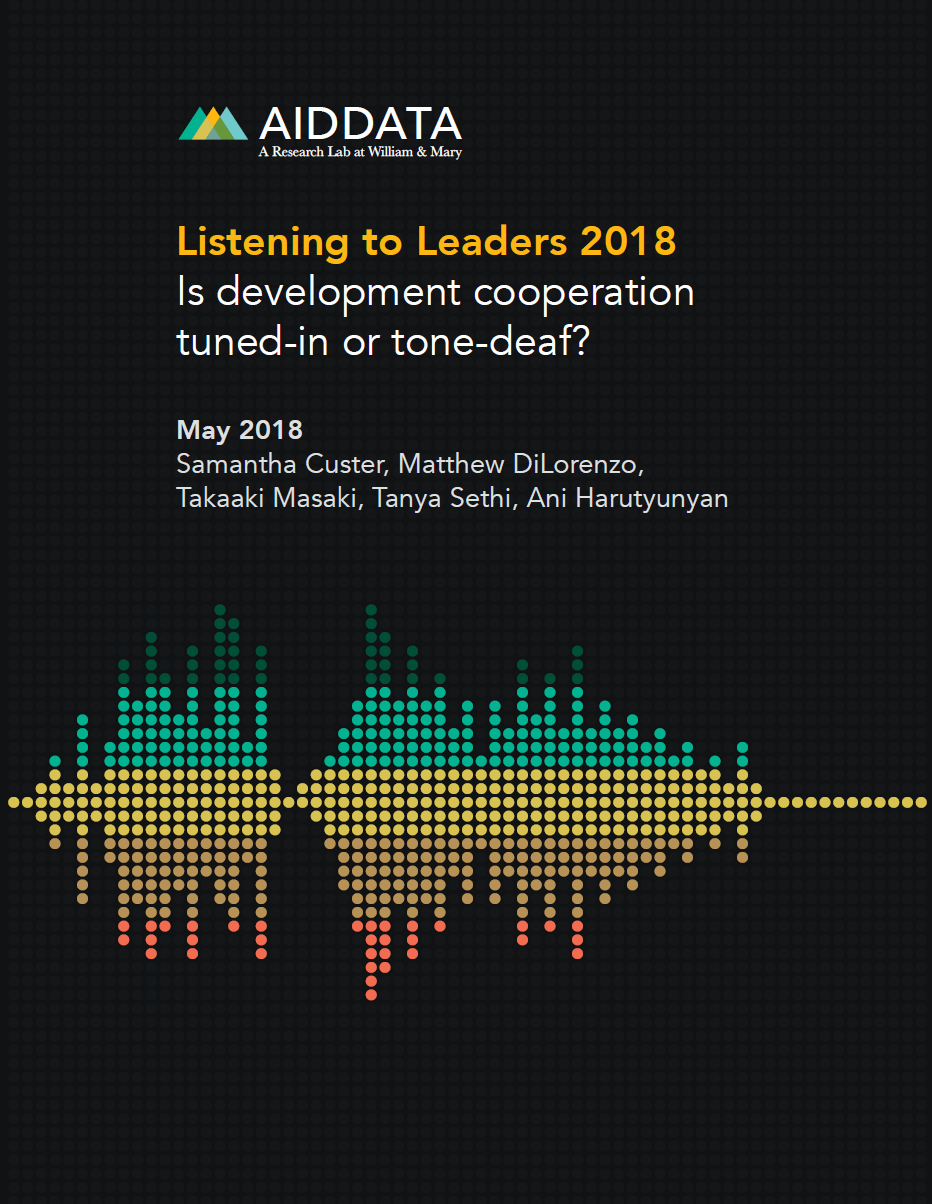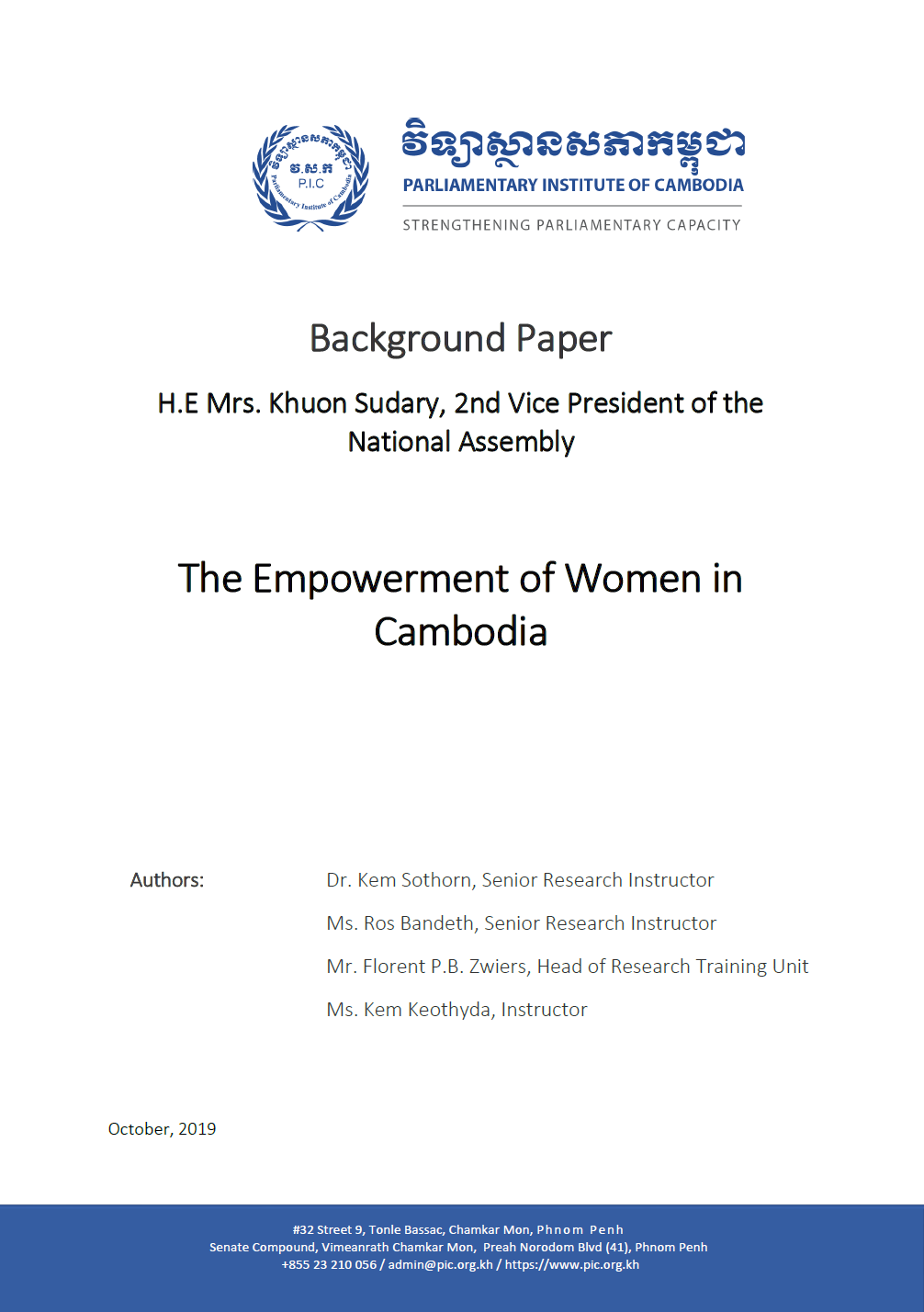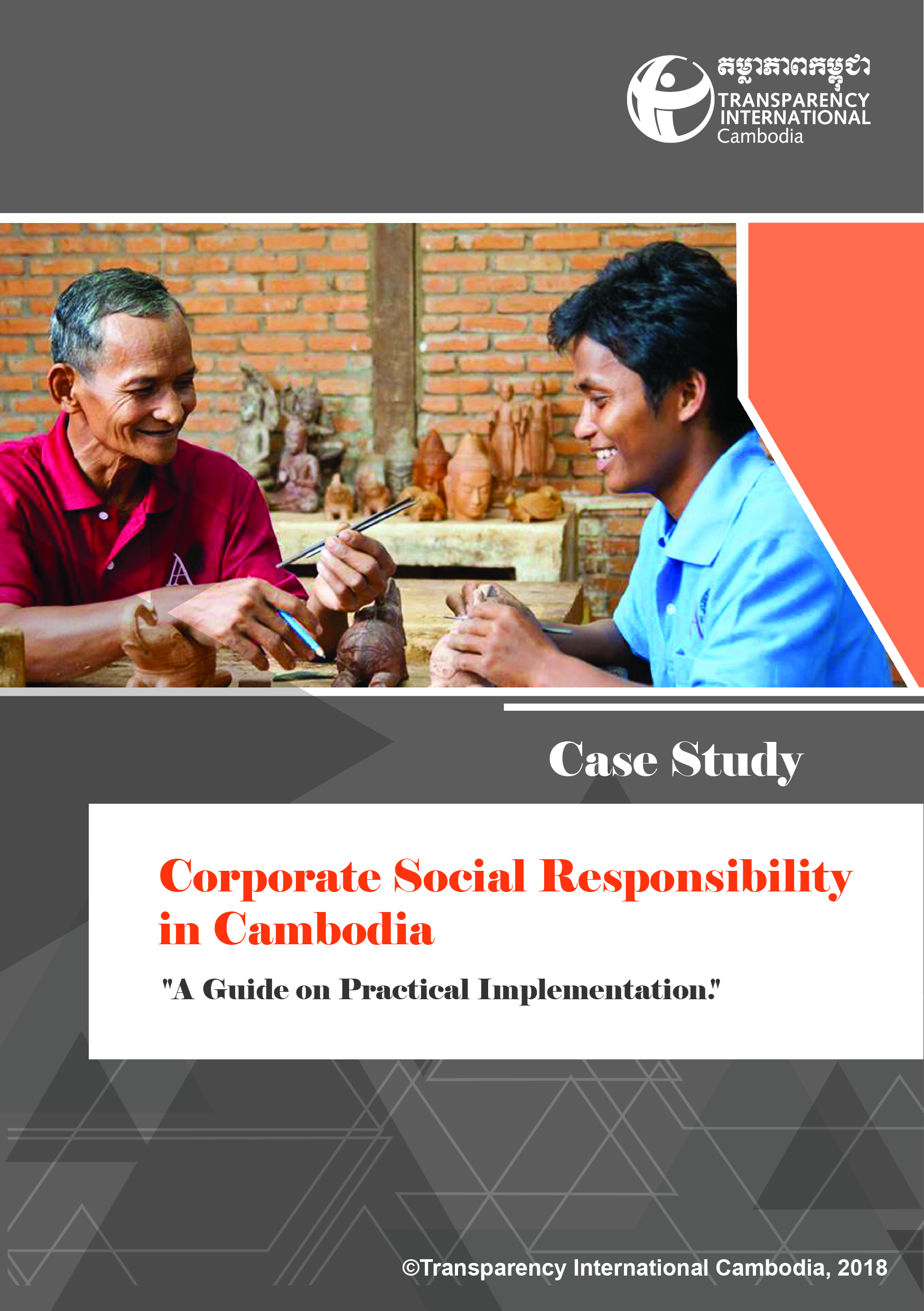Latest Entries
Listening to Leaders Survey 2018: Is development cooperation turn-in or tone-deaf?
Publication Year: 2018 / Sources: AidDataDo leaders, citizens and donors agree on the most important development challenges that need to be solved in the countries where they work? Whose support and what conditions make progress more or less likely? Which international donors do leaders consider to be their preferred development partners? To answer these questions, the Listening to Leaders 2018 report draws upon the unique experiences and perspectives of government officials, civil society leaders, private sector representatives, and development partners working on the ground in developing countries. Nearly 3,500 leaders working in 22 sectors of development policy in 126 low- and middle-income countries shared their insights via AidData’s 2017 Listening to Leaders Survey.
Download: English | KhmerThe Empowerment of Women in Cambodia
Publication Year: 2019 / Sources: Parliamentary Institute of CambodiaThe Global Sustainable Development Goals (SDGs) identified Gender Equality and Women’s Empowerment as one of the 17 Goals and stated that it was an effective means to end poverty, protect the planet and ensure that all people enjoy peace and prosperity by 2030[1]. Sustainable Development Goal 5 (SDG 5) was established to “achieve gender equality and empower all women and girls no later than 2030” through ending all forms of discrimination against women and girls[2]
Download: English | KhmerCAMBODIA 2040: Vol 1 – ECONOMIC DEVELOPMENT
Publication Year: 2019 / Sources: Konrad-Adenauer-StiftungCambodia has experienced drastic changes since the signing of the Paris Peace Accords in 1991. Twenty-five years later, Cambodia is a lower-middle-income country with consistently high GDP growth rates and concomitant improvements in human security as measured by the Human Development Index (HDI). The question that Cambodia confronts today is a seemingly simple one, but which is in fact remarkably complex: Whither Cambodia? From energy to industrialization to agriculture, how are the diverse sectors of Cambodian society and the Cambodian economy likely to develop over the next two decades?
Download: English | KhmerCorporate Social Responsibility in Cambodia “A Guide on Practical Implementation.”
Publication Year: 2018 / Sources:Small and Medium Enterprises (SMEs) are an essential component of the
Cambodian economy. In 2017 the Ministry of Industry and Handicrafts estimated
that 152,332 SMEs were operating in Cambodia.1 SMEs are defined by both the
statistical employee number and the financial assets of the company:
Case Study: Tax System in Cambodia
Publication Year: 2016 / Sources: Transparency International CambodiaCambodia, like many other developing countries, struggles with social equity issues that lead to corruption amongst public officials who require informal payments to provide a sufficient income for their families. Ultimately, corruption by public officials remains a major constraint for businesses operating in Cambodia. Cambodia’s registration process is classified as corrupt and inefficient.
Download: English | Khmer




